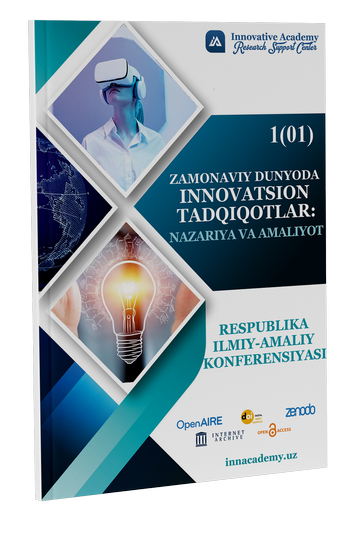THE ROLE OF THE LATEST APPROACHES IN TEACHING FOREIGN LANGUAGES AND THEIR APPLICATION WORLDWIDE
Main Article Content
Abstract:
The issue of applying an open way to deal with foreign language instructing of understudies in non-language branches of advanced education foundations in various nations has been examined in the paper. It has been noticed that the communicative approach, in light of intuitive techniques for educating and establishing the climate of normal language climate at class, shapes the teaching of language preparation in the USA, Malaysia, Serbia, Croatia, and in the greater part of West European nations. In China and Saudi Arabia, open way to deal with foreign language education is joined with a conventional strategy to foster a wide range of discourse movements. It has been validated that limiting the syntax part of understudies' foreign language preparation for framing just open abilities has brought to familiar yet linguistically wrong discourse. It has been demonstrated that the viability of foreign language instructing to an extensive degree relies upon applying the coordinated preparation framework because of customary didactics and communicative approaches.
Article Details
How to Cite:
References:
Acar, A., Memedova, B., Rzayev, H. & Sekerci, O. (2005). A Critical Review of Hymes’ on Communicative Competence. In: Proceedings of the First International Symposium on Modern Approaches Methods and ELT problems (5.–7.09.2005). Isparta: SDU Printing Centre, pp. 57–68.
Basta, J. (2011). The Role of the Communicative Approach and Cooperative Learning in Higher Education. Facta Universitatis. Ser. Linguistics and Literature, Volume 9, No 2, pp. 125–143.
Chen, G., Starosta, W. (2008). Intercultural Communication Competence: A synthesis. The Global Intercultural Communication Reader, pp. 215–237.
Howatt, A., Widdowson, H. (2004). A History of English Language Teaching. Oxford: Oxford University Press, 394 p.
Samimy, C., Kobayashi, C. (2004). Toward the Development of Intercultural Communicative Competence: Theoretical and Pedagogical Implications for Japanese English Teachers. JALT Journal, No 26 (2), pp. 245–261.
Mohammed, A. (2011). Cooperative Learning & Communicative Competence. Shaqra: Shaqra University, 199 p.
Richards, J. (2006). Forty Years of Language Teaching. Language Teaching, No 40 (1), pp. 1–15.
Richards, J., Rodgers, T. (2001). Approaches and Methods in Language Teaching. Cambridge: Cambridge University Press, 270 p.
Stern, H. (1983). Fundamental Concepts of Language Teaching: Historical and Interdisciplinary Perspectives on Applied Linguistic Research. Oxford: Oxford University Press, 582 p.
Мильруд, Р., Максимова, И. (2000). Современные концептуальные принципы коммуникативного обучения иностранным языкам [Modern Conceptual Principles of Communicative Foreign Languages Teaching]. Иностранные языки в школе [Foreign Languages at School], No 4, pp. 9–15 (in Russian).
Пассов, Е. (2008). «Танк модернизации» на ниве образования [“Tank of Modernization” on the Field of Education]. М. : Глосса–пресс, 240 p. (in Russian).

